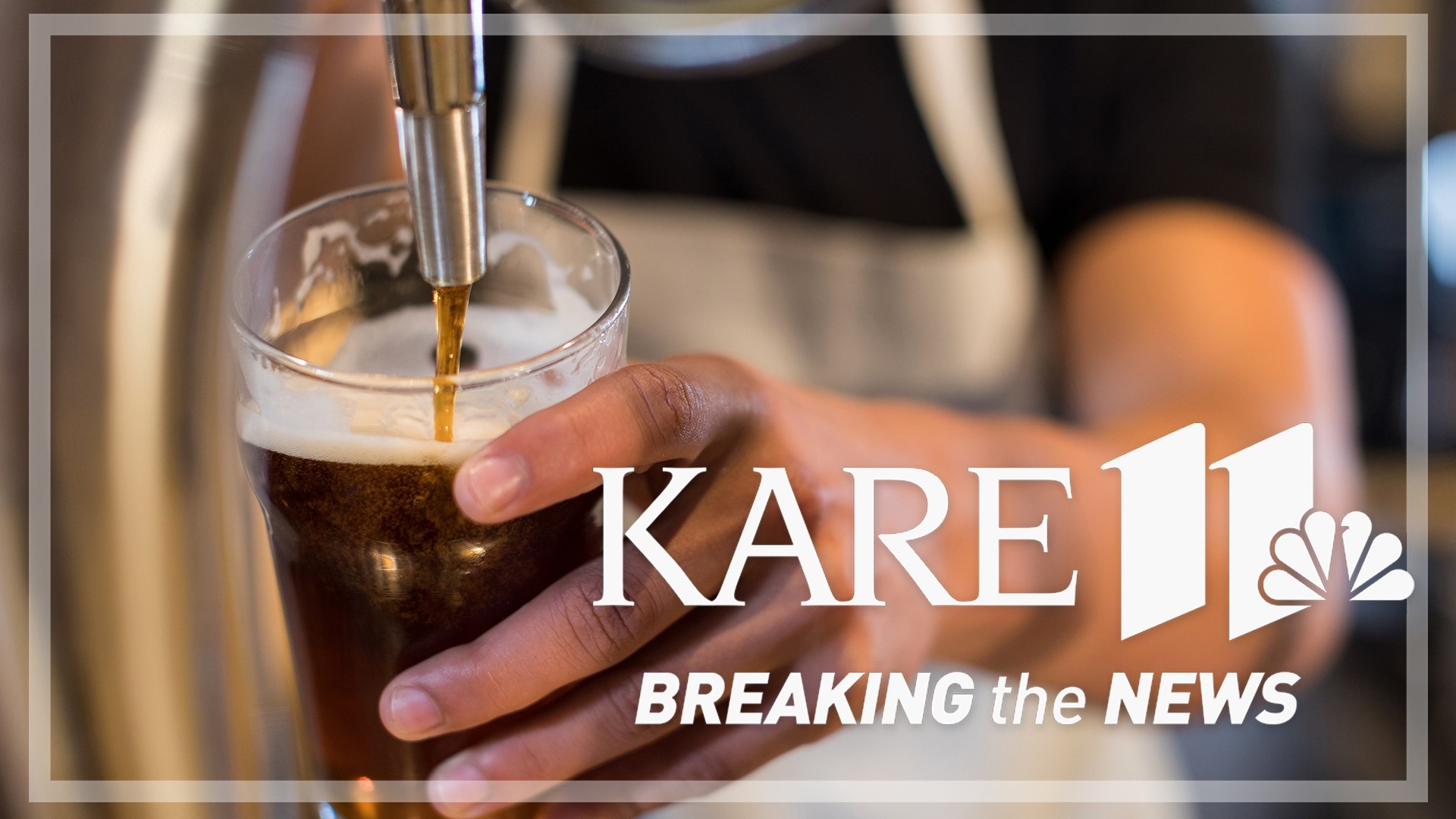MINNEAPOLIS — Craft brewers are no strangers to adjusting beers to the season and availability of certain ingredients, but take away the carbon dioxide, and everything falls flat.
"It's always needed," said Eric Biermann, owner of Inbound BrewCo in Minneapolis. "From purging your cans before you fill them, to pushing the beer through the tap line, you need CO2 for that. It's a major source of all your carbonation. While some of it is self-generated during the fermentation process, you always need a little extra on hand to get that beer to the proper carbonation level."
Biermann says having that extra CO2 on hand has never been a problem for Inbound, but he admits that concerns are begging to bubble up as he reads reports about a growing shortage, stemming from a bizarre source.
"There's a volcano, an extinct volcano, called Jackson Dome that is a source of a lot of the CO2 for the south and the southeast United States, but now, there's sulfur leaking into it so it's kind of contaminated. It's hard to clean it up and get that sulfur flavor out of it," Biermann said. "It makes you wonder if it is going to affect us."
The contamination at Jackson Dome isn't new, but what began as a regional supply issue, is now beginning to impact the CO2 market across the country.
"There's definitely a fair amount of concern among Minnesota brewers recently," said Bob Galligan, director of government and industry relations for the Minnesota Craft Brewers Guild.
Unlike some other areas of the country, Galligan says it's unlikely the disruption in CO2 supply will lead to disruptions in beer production in Minnesota. That's thanks, in part, to ethanol producers, who capture beverage-grade CO2 as a by-product and supply it across several Midwest states.
Despite that alternative source, Galligan says increased demand and seasonal changes do pose a challenge.
"A lot of CO2-processing facilities are now getting ready for maintenance," Galligan said. "When those facilities shut down, they shut down for a month at a time or so. I haven't heard of anybody here not being able to get any supply, but I've just seen definite price increases."
You can add it to a growing number of price increases, stemming from shortages of everything from aluminum cans to key brewing ingredients.
Biermann: "We've struggled with wheat from the Russia-Ukraine conflict. Drought is also impacting some of the major suppliers of barley production, so what normally would be in your beer is being fed to cattle because it just doesn't speck out."
Erdahl: "If you were to say there is one thing that you've lost the most sleep over in the last year, what's that?"
Biermann: "It's probably been the can shortage. It's been monumental in planning. You have to order semi-loads six months in advance of when you actually needed them and it used to be like 30 days."
Fortunately, Eric says both can supply and prices have started to improve recently.
"So far, our prices and supply have been stable, and we'll keep our fingers crossed that it stays that way," he said.
Watch more Breaking The News:
Watch all of the latest stories from Breaking The News in our YouTube playlist:

